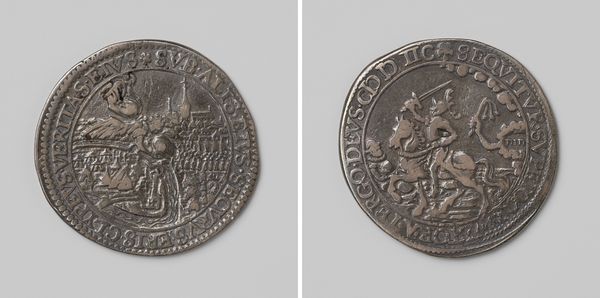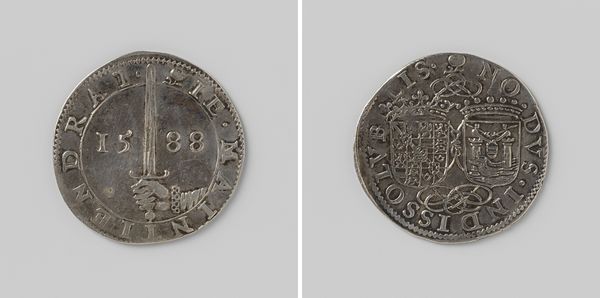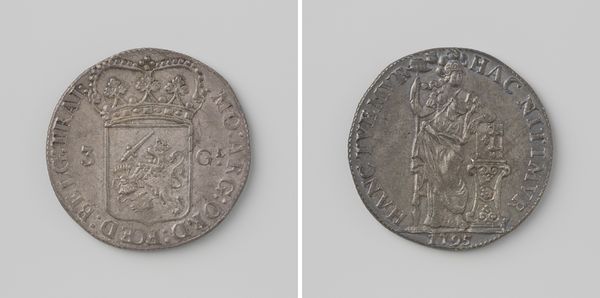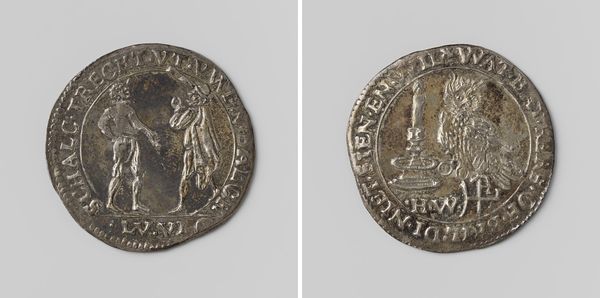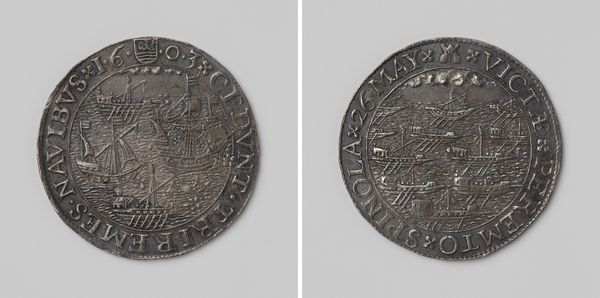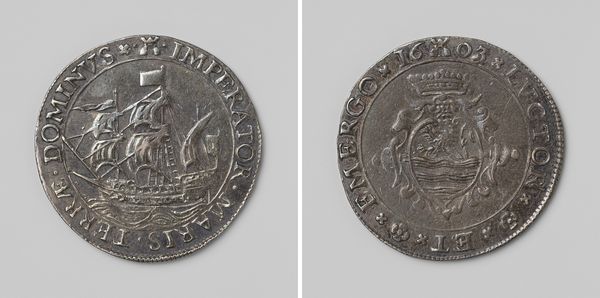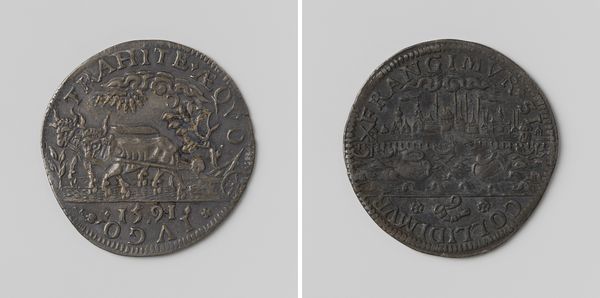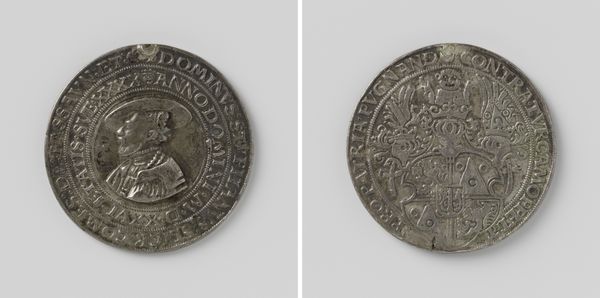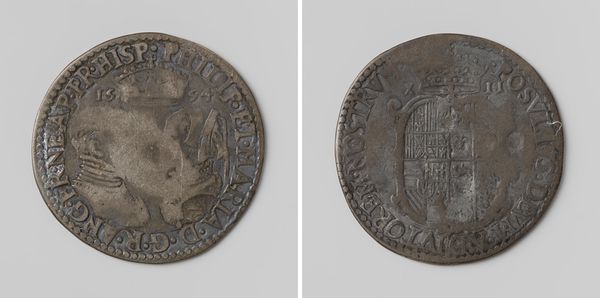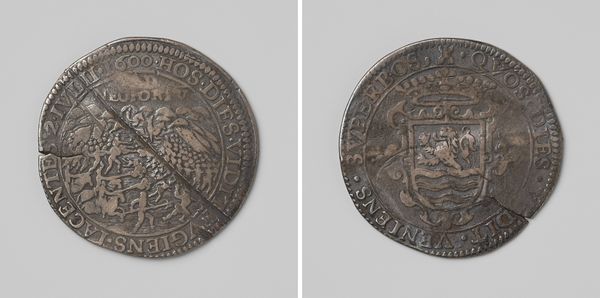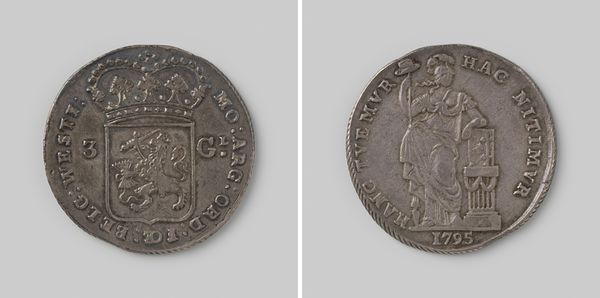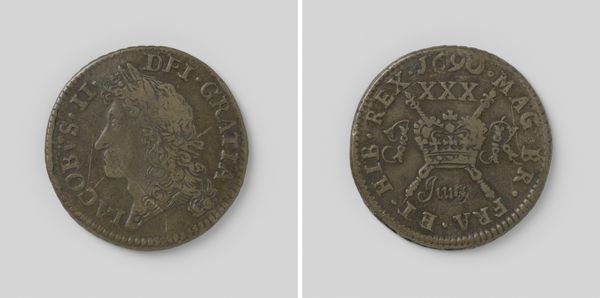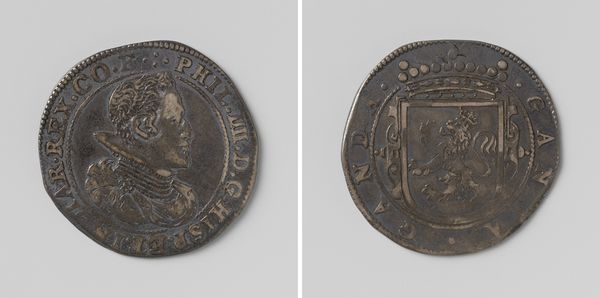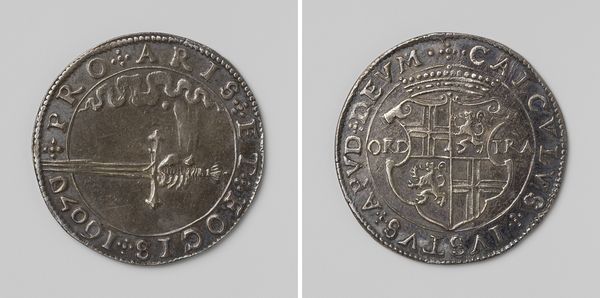
print, metal, sculpture, engraving
#
portrait
#
baroque
# print
#
metal
#
sculpture
#
geometric
#
sculpture
#
history-painting
#
engraving
Dimensions: diameter 3 cm, weight 7.60 gr
Copyright: Rijks Museum: Open Domain
This silver medal was struck in 1608 by an anonymous maker, commemorating a truce between the Dutch Republic and Spain. The coin's design has been achieved through a combination of skilled metalworking techniques. Likely, a master die engraver would have painstakingly cut the detailed imagery into a steel die. This die would then have been used to stamp the design onto the silver blank, under great pressure. Look closely at the intricate details: on one side a shepherd is depicted, staff in hand, and on the other a coat of arms with livestock. These would have been rendered in miniature by the engraver with incredible precision. Consider too, the political and economic context: the silver itself would have been a valuable commodity, embodying wealth and power. Minting these medals in multiples, and distributing them widely, would have served to broadcast and solidify public sentiment around the truce. Ultimately, this medal illustrates how materials, making, and context are intertwined. What may seem like a simple object is actually dense with cultural and historical significance.
Comments
No comments
Be the first to comment and join the conversation on the ultimate creative platform.
